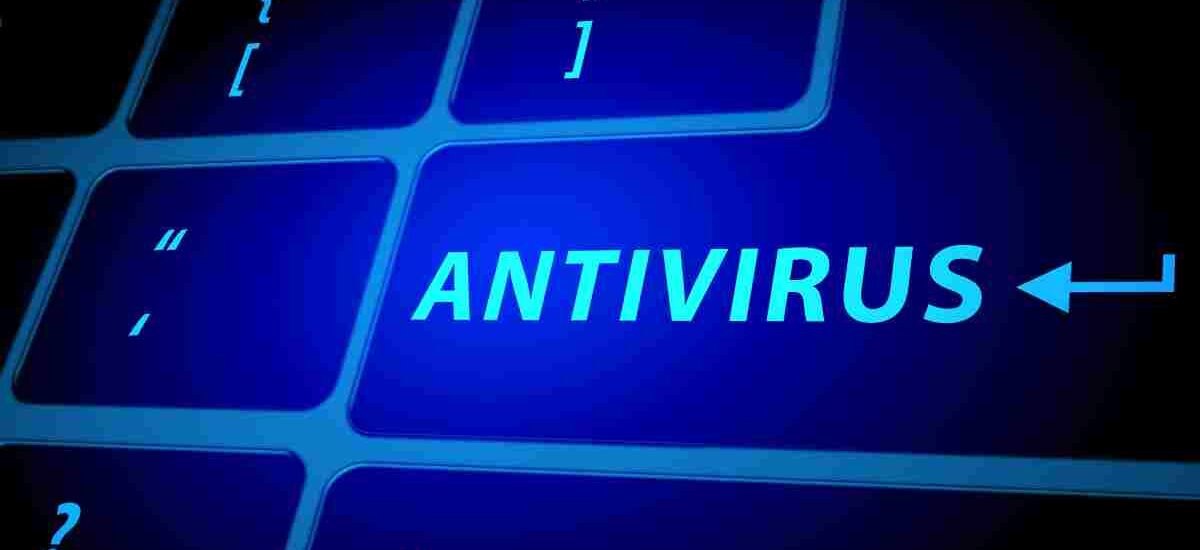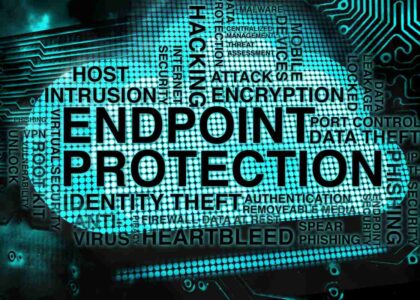You’ve probably heard of antivirus software. Maybe you’ve even been saved by it a few times. You might also be hearing a newer buzzword floating around—endpoint security.
But wait a second… aren’t they the same thing?
Not really.
Grab a coffee (or energy drink, we don’t judge), because in this blog, we’re diving deep into the world of endpoint security vs antivirus. You’ll walk away knowing the difference, why it matters in 2025, and which one you actually need (spoiler: probably both, but let’s get into it).
The Basics: What Is Antivirus?
Let’s start with the OG of cybersecurity—antivirus software.
Back in the ‘90s and early 2000s, antivirus was the superhero of home PCs. It would sit quietly on your computer, scanning files, looking for known viruses, and zapping them before they could mess with your machine.
Classic antivirus tools do things like:
- Scan for known malware
- Quarantine or delete infected files
- Run periodic system scans
- Offer real-time protection (in newer versions)
- Block malicious websites or links
Popular names you probably know:
- Avast
- Norton
- McAfee
- Kaspersky
- AVG
Think of antivirus as the neighborhood watch. It’s effective for common threats—but it has limitations, especially in today’s hyper-connected world.
Okay, So What’s Endpoint Security Then?
Endpoint security is like antivirus on steroids. It’s the upgraded, enterprise-level cousin who shows up to a fight wearing a bulletproof vest, AI glasses, and holding a threat intelligence map.
While antivirus protects individual devices, endpoint security is about protecting all endpoints—which includes:
- Laptops
- Desktops
- Smartphones
- Tablets
- Servers
- Even IoT devices
Endpoint security isn’t just reactive (like antivirus); it’s proactive and centralized.
It typically includes:
- Antivirus capabilities (✅ Check)
- Firewall controls
- Intrusion detection & prevention (IDS/IPS)
- Application control
- Device control (USB blocking, etc.)
- Data loss prevention (DLP)
- Behavior analytics
- Remote threat isolation
- Patch management
- Endpoint Detection & Response (EDR)
It’s not just a program, but a complete security infrastructure. And it’s usually managed centrally by IT/security teams.
Key Difference: Scope & Intelligence
Let’s keep it simple.
| Feature | Antivirus | Endpoint Security |
|---|---|---|
| Focus | Malware detection/removal | Full-spectrum endpoint protection |
| Devices covered | Single device | Multiple endpoints |
| Management | Local (on device) | Centralized (via dashboard) |
| Response | Reactive | Proactive + Reactive |
| Protection type | Signature-based (mostly) | Signature + Behavioral + AI |
| Ideal for | Home users | Businesses/Enterprises |
In essence:
Antivirus is like locking your front door.
Endpoint security is like installing CCTV, motion detectors, and hiring a security guard.
Why This Matters More Than Ever in 2025
Let’s be honest—cyber threats are getting smarter.
We’re not just dealing with viruses or spam anymore. We’re dealing with:
- Ransomware that encrypts your business files and demands payment in Bitcoin.
- Fileless malware that leaves no trace on your disk.
- Zero-day exploits targeting vulnerabilities before vendors even know they exist.
- Phishing attacks tricking employees into giving away sensitive data.
- Insider threats (yep, even your own people).
In such a threat landscape, traditional antivirus is like bringing a kitchen knife to a battlefield.
What Counts as an “Endpoint”?
Great question.
An endpoint is any device that connects to your network and can send or receive data. This includes:
- Desktop PCs
- Laptops
- Smartphones
- Tablets
- IoT devices (like smart cameras or fridges!)
- Servers
- Printers
- POS systems
Yes, even that dusty old printer in your office that everyone hates can be an attack vector.
Modern Endpoint Security: The Rise of EDR and XDR
Let’s throw in some buzzwords you might have seen on job descriptions or vendor brochures.
EDR (Endpoint Detection and Response)
EDR tools go beyond just blocking threats—they:
- Monitor behavior patterns
- Detect suspicious activities
- Record activity for forensic investigations
- Automate response to threats (like isolating an endpoint)
Think of EDR as a smart detective constantly analyzing and learning.
XDR (Extended Detection and Response)
XDR is like EDR… but supercharged. It doesn’t just protect endpoints; it extends to email, cloud, network, and beyond.
If endpoint security is your personal bodyguard, XDR is the entire security agency.
Use Cases: When to Use What?
Use Antivirus If:
- You’re a home user or freelancer
- You have only 1 or 2 devices
- You mostly need protection from known threats
- You don’t have sensitive enterprise data
- You’re on a budget
Use Endpoint Security If:
- You’re running a business
- You manage multiple devices (especially remote teams)
- You need centralized visibility and control
- You need advanced threat protection
- You deal with sensitive data (finance, healthcare, legal)
- Compliance (GDPR, HIPAA, etc.) matters
Spoiler: Most companies in 2024 must have endpoint security. Antivirus just won’t cut it anymore.
Let’s Talk Money: Cost Comparison
Antivirus
- Usually $20–$60/year per device
- Some even free (with limited features)
- One-off or annual renewal
Endpoint Security
- Pricing varies based on number of endpoints
- Monthly subscription models
- Can range from $5–$25 per endpoint/month
- Enterprise plans can run into thousands (worth it though)
Endpoint security isn’t cheap—but it’s way cheaper than dealing with a breach.
Real-World Example: Small Business Attack
Imagine you run a small marketing agency. You’ve got 8 employees working remotely. You rely on Google Workspace, Zoom, Canva, and a few CRMs.
Now picture this:
One employee clicks a fake Dropbox link.
Boom. Malware installed.
Your CRM data? Gone.
Client info? Compromised.
Reputation? Destroyed.
If you had antivirus, maybe it would’ve flagged the malware. Maybe not.
If you had endpoint security with EDR, it would’ve:
- Flagged the suspicious domain
- Notified IT
- Isolated the infected device
- Stopped the malware from spreading
- Logged the event for analysis
That’s the difference between surviving an attack… and shutting down your business.
Myths Busted
Let’s clear a few misconceptions:
❌ “I have antivirus, so I’m safe.”
✅ Nope. Antivirus is one layer. You need a multi-layered defense.
❌ “Endpoint security is only for big companies.”
✅ Not anymore. With cloud solutions, even small businesses can (and should) use it.
❌ “Antivirus and endpoint security are the same.”
✅ Not quite. Antivirus is a feature of endpoint security, not a replacement.
❌ “I use Mac. I don’t need protection.”
✅ LOL. Macs can be hacked too. Malware doesn’t care about your aesthetic.
Popular Endpoint Security Solutions in 2025
Here are a few platforms making waves:
- CrowdStrike Falcon
- SentinelOne
- Microsoft Defender for Endpoint
- Bitdefender GravityZone
- Sophos Intercept X
- Trend Micro Apex One
- Fortinet FortiEDR
Most of these offer AI-based detection, remote management, and integration with cloud and network-level protections.
TL;DR (Too Long; Definitely Read!)
| Feature | Antivirus | Endpoint Security |
|---|---|---|
| Target | Individual users | Businesses & organizations |
| Scope | Device-level | Network-wide (multiple endpoints) |
| Detection Method | Signature-based | Behavioral + AI + signature |
| Management | Local (on device) | Centralized (dashboard/cloud) |
| Ideal For | Personal protection | Enterprise protection |
| Includes Antivirus | ❌ No | ✅ Yes |
Final Thoughts: Which One Should You Use?
If you’re a solo freelancer just surfing the web and emailing clients, antivirus will do. But if you’re managing a team, handling client data, working in healthcare, finance, or tech—endpoint security isn’t optional anymore.
In today’s threat landscape, attackers don’t knock. They sneak in quietly.
And unless you’re watching every device, every time, all the time, you’re at risk.
So make the shift. Your future self (and your IT guy) will thank you.




